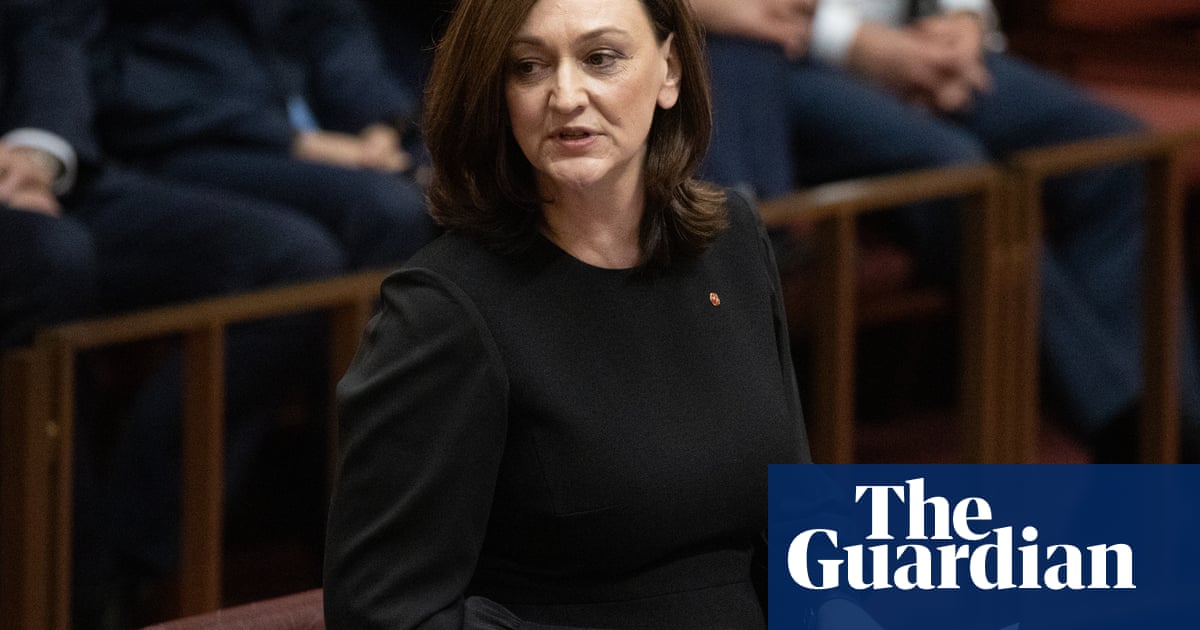Liberals pushing for changes to party rules to boost female representation in parliament will propose gender quotas with enforceable expiry dates, in a bid to win the broadest possible support for the plan.
Wednesday night’s meeting of the NSW Liberal Women’s Council is set to include preliminary discussions about gender quotas for party preselections, days after the opposition leader, Sussan Ley, saidshe was open to rule changes.
Proponents of quotas, including theNSW senator Maria Kovacic, say sunset provisions to remove preferential treatment for women must be included in any rule change.
The new House of Representatives will include just six Liberal women, a level of gender diversity not seen since the Howard era.
The president of the council, Berenice Walker, said practical solutions to bring in more women were urgently needed.
“Men are just not going to give up their power and that’s where it needs to be mandated,” she said.
Sign up for Guardian Australia’s breaking news email
Walker warned “review points” would be required for any quota plan to assess their effectiveness after certain thresholds were met.
“I’ve noticed that there are more people coming on board to discuss the potential for quotas. They do want to look at solutions.”
Kovacic said any quota rules would take multiple electoral cycles to be effective, and would require the support of state and territory divisions.
“Our goal must be genuine gender parity, with equal numbers of men and women contesting both marginal and safe seats,” she said.
“Achieving this goal will likely take two election cycles.
“Once that balance is reached, we can return to the existing system with confidence that equity has been successfully embedded. A sunset clause would be an appropriate mechanism to ensure the temporary nature of a quota system.”
The senior Liberal frontbencher Angus Taylor and the former prime minister Tony Abbott are among the high-profile opponents of quotas.Taylor has said they “subvert democratic processes”and has called for more mentoring of women as a measure to improve representation.
The federal Liberal vice-president and former MP Fiona Scott said quotas “could be a solution”, provided they were part of a suite of changes.
“We need more pathways and organisations for women to inspire professional women to join,” she said.
The shadow minister for women, Melissa McIntosh, said the quotas debate oversimplified the issue. She called for the review into the party’s future, established after its devastating federal election defeat, to consider a range of mechanisms, including mentorship, pathways and quotas.
“The review must first and foremost, when it comes to women, look at addressing the culture of theLiberal partybecause you could have all the quotas in the world but that won’t make any difference if the cultural issues aren’t fixed,” McIntosh said.
“We need to reflect, attract and support women – in our communities, within our party and the parliament. There is no question the Liberal party needs greater female representation.”
The newly elected NSW Liberal senator Jess Collins said quotas were a bad idea, and ignored the many women who were preselected without preferential rules.
“I think that is a complete slap in the face for all of those terrific women, and I think it’ll take the party backwards,” she said.
“I see gender quotas being weaponised as a means of consolidating factional power. We are trying now to move the New South Wales division out of that factional maelstrom, and I see gender quotas as a way to hold on to that power for those people at the top.”
The NSW Young Liberals president, Georgia Lowden, said party members were open to trying new approaches, because “things aren’t getting better”.
“We need structural and cultural reform to recruit, mentor and promote more women. We should look at quotas as a temporary measure to level the playing field while we build lasting change.”
“We need to show women across the country that there’s a place for them in the Liberal party.”
